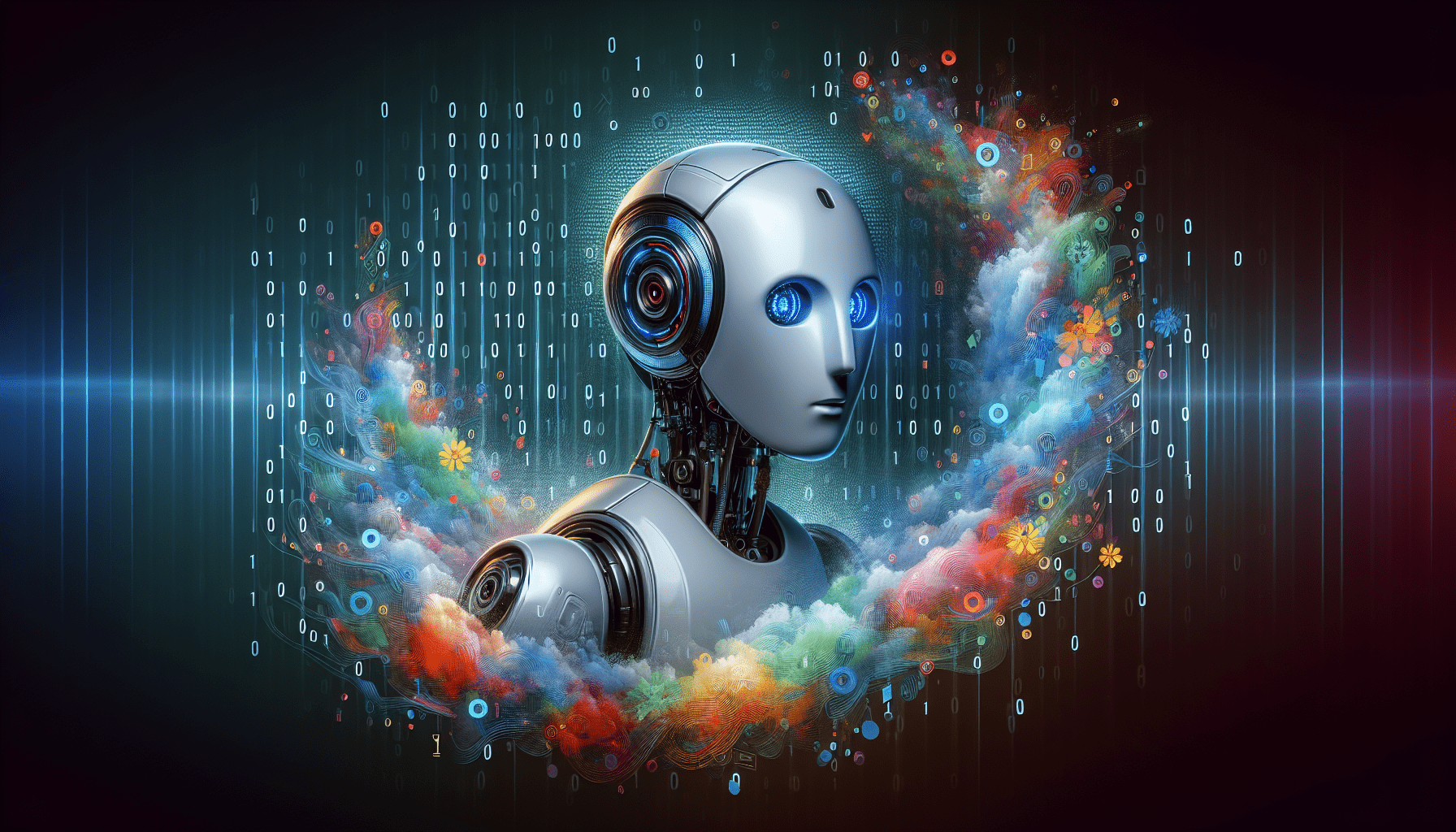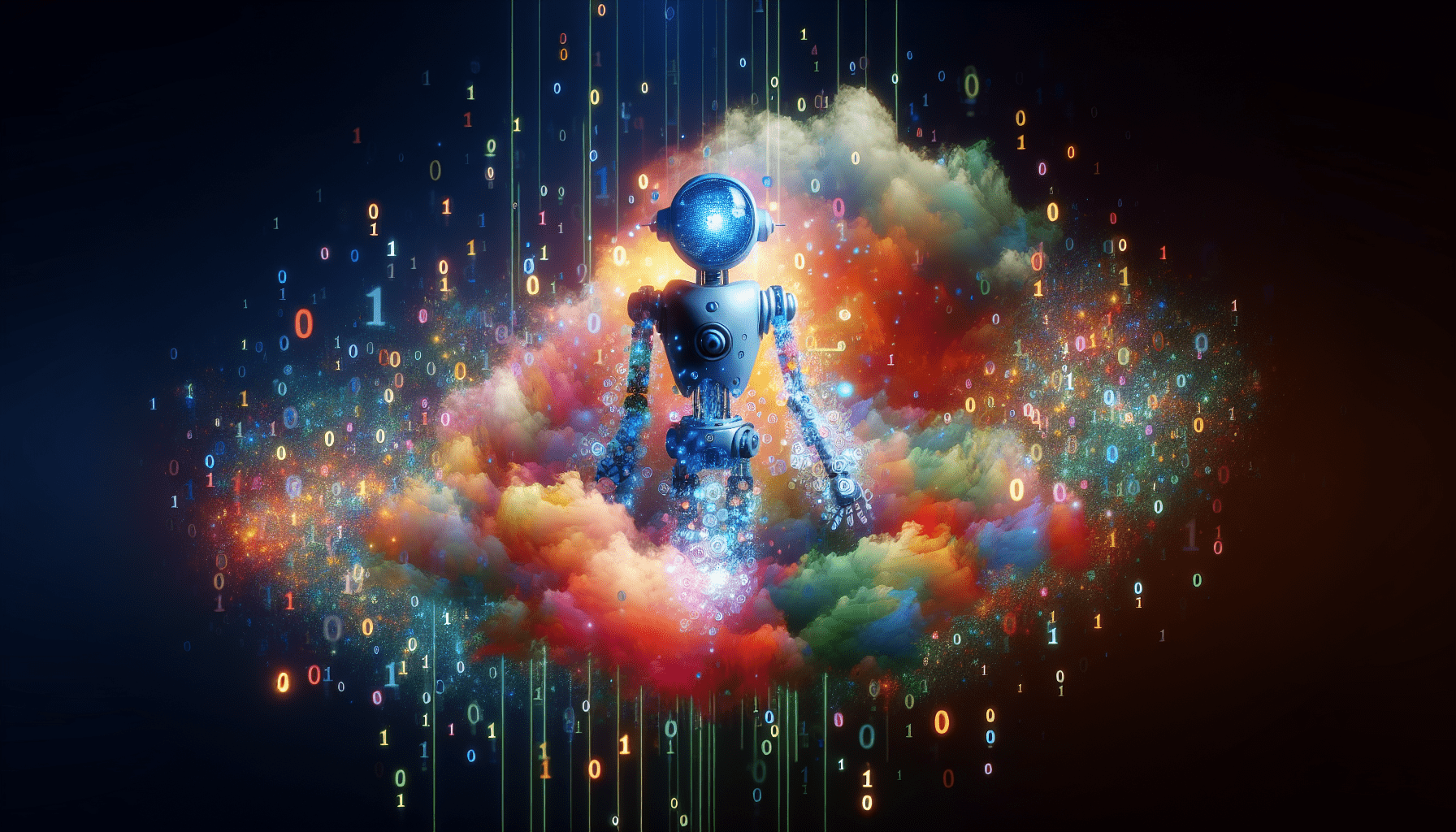Whether you’re a tech enthusiast or simply curious about the world of Artificial Intelligence, “Exploring AI for Newbies” is your go-to crash course into the fascinating realm of AI. This article serves as a beginner-friendly introduction, providing you with a clear understanding of what AI is and how it impacts our everyday lives. From self-driving cars to voice assistants, AI has become an integral part of our society, and this article will guide you through the basics, helping you navigate the wonders and possibilities of this cutting-edge technology. So, buckle up and get ready to embark on an exciting AI adventure!
Understanding AI
Defining AI
Artificial Intelligence (AI) refers to the development of computer systems that can perform tasks that normally require human intelligence. These tasks may include speech recognition, problem-solving, learning, and decision-making. AI technology aims to replicate human cognitive abilities and provide machines with the ability to understand, reason, and interact with their environment.
Types of AI
There are several types of AI, each with its own capabilities and limitations. One type is Narrow AI, which is designed to perform specific tasks and is limited to the scope of its programmed abilities. On the other hand, General AI represents a system that possesses the ability to understand or learn any intellectual task that a human being can do. However, General AI is still a concept that is being explored and has not yet been achieved.
Applications of AI
AI has found applications in various fields, revolutionizing the way we live and work. From smartphones to social media platforms, AI has become an integral part of our everyday lives. Some common applications of AI include smart assistants, social media algorithms, recommendation systems, fraud detection in finance, autonomous vehicles, and healthcare diagnostics, among others.
AI in Everyday Life
AI in Smart Assistants
Smart assistants, such as Amazon’s Alexa, Apple’s Siri, and Google Assistant, have become increasingly popular in households. These AI-powered devices respond to voice commands and perform tasks such as setting reminders, playing music, providing weather updates, and answering general knowledge questions. The AI algorithms behind these smart assistants continuously improve their understanding and response capabilities through machine learning.
AI in Social Media
Social media platforms like Facebook, Instagram, and Twitter utilize AI algorithms to enhance user experience. AI helps personalize users’ news feeds by analyzing their preferences, behavior, and past interactions. These algorithms determine what content to show to each user, making the social media experience more tailored and engaging.
AI in Recommendation Systems
Recommendation systems leverage AI to provide customized suggestions to users. Online shopping platforms, streaming services, and content platforms use AI algorithms to analyze users’ past choices and preferences and offer recommendations accordingly. These systems play a significant role in increasing customer satisfaction and driving engagement.

AI and Privacy
Data Collection and Privacy
One of the main concerns surrounding AI is the collection and use of personal data. As AI systems rely on vast amounts of data to improve their performance, privacy concerns arise. The data collected from users can include personal information, preferences, and behavior patterns. It is essential for organizations to handle and protect this data responsibly to ensure user privacy and maintain trust.
Ethical Considerations
The ethical implications of AI are a critical aspect of its development and deployment. Issues such as bias in algorithms, transparency in decision-making, and accountability for AI-powered systems need to be carefully addressed. Ethical frameworks must be implemented to ensure that AI is used in a manner that respects human values, upholds fairness, and avoids discriminatory outcomes.
AI and Jobs
Impacts on Employment
The rise of AI has sparked concerns about its impact on jobs. While some argue that AI will lead to widespread job displacement, others believe it will create new job opportunities. Certain tasks and jobs may indeed become automated, reducing the need for human labor. However, AI is also expected to create new roles that involve the development, maintenance, and oversight of AI systems, as well as job opportunities in various industries that leverage AI technology.
New Job Opportunities
AI is creating new job opportunities that were previously unimaginable. As AI becomes more sophisticated, professionals with expertise in AI, machine learning, and data analytics are in high demand. Roles such as AI engineers, data scientists, AI ethicists, and AI trainers are emerging as key positions in many organizations. These jobs offer exciting prospects for those interested in the intersection of technology and human intelligence.

AI and Education
AI in Learning Management Systems
Learning Management Systems (LMS) are adopting AI to personalize the learning experience for students. AI algorithms can analyze students’ performance data, identify areas of difficulty, and provide personalized recommendations and feedback. This individualized approach helps students learn at their own pace and addresses their specific learning needs.
AI in Personalized Education
AI is transforming education by providing personalized learning experiences. Adaptive learning platforms leverage AI algorithms to customize course content, assignments, and assessments based on individual student strengths and weaknesses. This tailored approach allows students to receive targeted instruction and support, optimizing their learning outcomes.
Challenges and Benefits
While AI offers great potential in education, there are challenges to overcome. Ensuring privacy and data security in educational AI systems is crucial. Additionally, there is a need to address concerns about the overreliance on AI in the learning process and the potential bias that AI algorithms may introduce. However, the benefits of AI in education, such as increased engagement, improved learning outcomes, and access to quality education for all, make it a promising field for exploration.
AI and Healthcare
AI in Diagnostics
AI has made significant advancements in medical diagnostics. Machine learning algorithms can analyze medical images, such as X-rays and MRIs, to detect patterns and identify potential abnormalities. AI-powered diagnostic tools have the potential to assist healthcare professionals in making more accurate and efficient diagnoses, improving patient outcomes.
AI in Drug Development
AI is revolutionizing the pharmaceutical industry by expediting the drug discovery process. Using AI algorithms, researchers can analyze vast amounts of medical and biomedical data to identify potential drug candidates more efficiently. This can significantly reduce the time and cost associated with developing new drugs, leading to faster innovation and improved treatment options.
AI in Telemedicine
Telemedicine utilizes AI to enable remote patient care. Through AI-powered chatbots and virtual assistants, patients can receive preliminary medical advice and assistance without visiting a healthcare facility. This technology improves accessibility to healthcare services, especially in rural or underserved areas, and can help alleviate the burden on healthcare systems.

AI in Finance
AI in Fraud Detection
AI has proven to be highly effective in detecting and preventing fraud in the finance industry. AI algorithms can analyze large volumes of financial data and identify patterns that may indicate fraudulent activity. These intelligent systems can flag suspicious transactions and enable swift action to prevent financial losses.
AI in Algorithmic Trading
Algorithmic trading leverages AI to execute trades based on pre-programmed rules and market conditions. AI algorithms can analyze vast amounts of financial data and make faster, data-driven trading decisions. This technology has the potential to enhance the efficiency and accuracy of trading, benefiting both individual investors and financial institutions.
AI in Customer Service
AI-powered chatbots and virtual assistants are transforming customer service in the finance industry. These intelligent systems can interact with customers, understand their queries, and provide instant responses and solutions. AI-driven customer service not only enhances the customer experience but also improves efficiency and reduces costs for financial institutions.
AI in Transportation
AI in Autonomous Vehicles
Autonomous vehicles, commonly known as self-driving cars, rely heavily on AI technology. AI algorithms process real-time sensor data to perceive their surroundings, make decisions, and navigate without human intervention. The development of autonomous vehicles has the potential to revolutionize transportation by improving safety, reducing traffic congestion, and enhancing mobility.
AI in Traffic Control Systems
AI can optimize traffic control systems to improve traffic flow and minimize congestion. Smart traffic management systems utilize AI algorithms to analyze real-time traffic data, adjust traffic signal timings, and optimize traffic routes. These systems can significantly reduce travel time and enhance the overall efficiency of transportation networks.
Challenges and Considerations
While AI in transportation offers significant benefits, there are challenges to overcome. Ensuring the safety and reliability of autonomous vehicles remains a priority, as any failure in AI systems can have severe consequences. Additionally, ethical considerations related to decision-making in critical scenarios need to be addressed. It is essential to strike a balance between the advancement of AI in transportation and ensuring public trust and safety.

AI and Creativity
AI-generated Art
AI is making its mark in the creative field by generating art using machine learning algorithms. These algorithms can analyze large datasets of artwork from various styles and create original pieces. Some AI-generated art has gained recognition in the art world, challenging traditional notions of creativity and raising interesting questions about the role of machines in the creative process.
AI in Music Composition
AI is also making strides in music composition. Machine learning algorithms can analyze vast amounts of music data to generate original compositions or assist musicians in creating new pieces. AI-powered music composition tools offer endless possibilities for exploration and collaboration between human musicians and AI systems.
AI in Content Creation
Content creators can leverage AI to streamline their creative process. AI algorithms can automate tasks such as video editing, translation, and content generation. This technology allows content creators to focus on the more creative aspects of their work, enhancing productivity and efficiency.
Future of AI
Potential Advancements
The future of AI holds immense possibilities for advancement. Ongoing research and development aim to create even more intelligent systems that can understand human emotions, engage in natural language conversations, and exhibit creativity. Reinforcement learning, neuroevolution, and quantum AI are some areas being explored to push the boundaries of AI technology.
Ethical and Societal Implications
As AI continues to evolve, there are ethical and societal implications that need careful consideration. Questions about the impact on employment, algorithmic bias, and the potential for AI systems to outperform human intelligence are some of the concerns that must be addressed. Striking a balance between technological progress and maintaining ethical standards is crucial for the responsible development and deployment of AI.
In conclusion, AI is shaping the world around us and infiltrating various aspects of our lives. From personalized recommendations to autonomous vehicles, AI technology is transforming industries and creating new opportunities. Understanding AI, its potential, and the ethical considerations that accompany its development and deployment are essential for ensuring a sustainable and beneficial future for this groundbreaking technology.







Leave a Reply